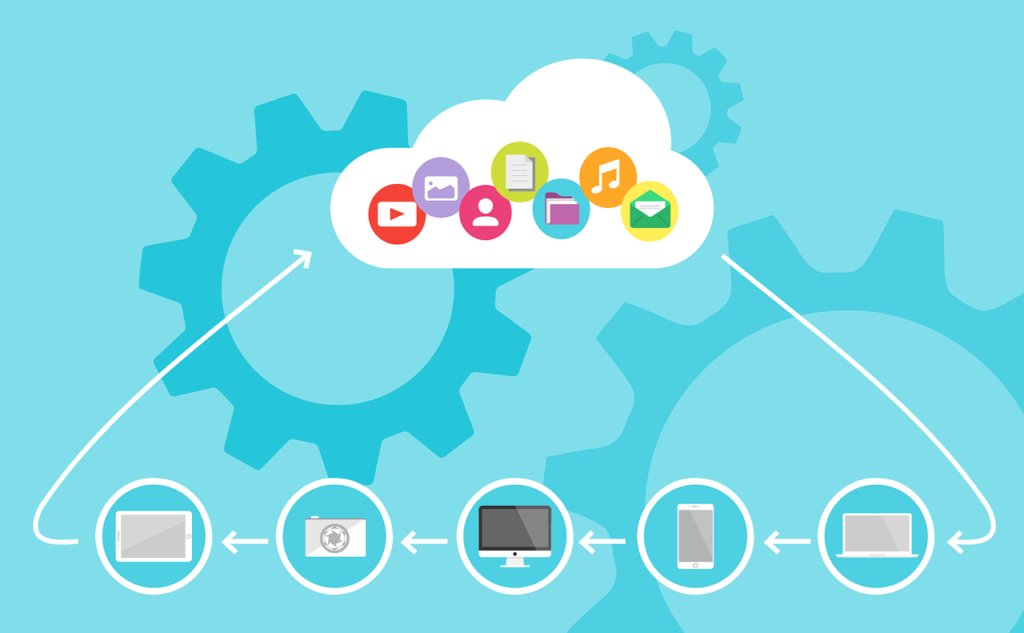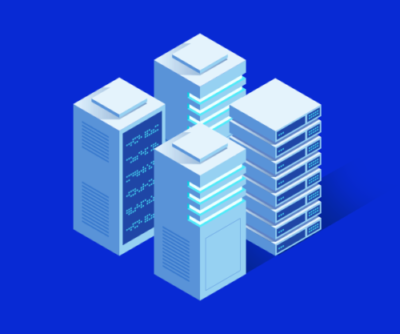Cloud computing is a technology that allows you to remotely access, from anywhere in the world and at any time, software, file storage and data processing over the Internet, without the need for connect to a personal computer or local server.
In other words, cloud computing uses connectivity and large-scale Internet to host the most varied resources, programs and information, and allows the user to enter them through any computer, tablet or cell phone.
If it was not clear yet, let me exemplify it: if you ever edited a document in Google Docs, listened to music on Spotify or watched a movie on Netflix , you had direct contact with cloud computing. All of them are online services that do not require the download, installation and access of any type of software or file on your computer. You only need a browser and a good Internet connection to use them.
Main features of cloud computing are:
- Application Development and other services.
- Data analysis and create models or patterns of predictions in business.
- Software development and administration.
- Storage, backup and data recovery.
- Share videos, photos and audios.
- Website hosting services.
What services does cloud computing have?
Currently, cloud computing offers a wide variety of services, tools and functionalities to meet the needs of companies. serverspace.us are experts in flexible, affordable and scalable Cloud, Virtual and Infrastructure based IT solutions suitable for everyone from small businesses. Best Cheap Cloud Hosting Providers give multitude of cloud storage providers out there.
Among the main offers, 3 models stand out:
SaaS (Software as a service)
SaaS allows access to software without buying your license, using it for free from the cloud, often with limited resources.
However, there are also payment plans in which a fixed rate is charged, a value that varies according to use or even without cost, if the resource offers advertisements or other forms of monetization.

In this format, the company accesses the software via the Internet, without the need to worry about the installation, configuration and investment in licenses.
Many CRMs and ERPs work through SaaS. Email services and other public applications, such as Skype, WhatsApp, LinkedIn and Facebook also work with this type of model, so it is the most popular mechanism.
PaaS (Platform as a service)
In this cloud model, a complete on demand development environment is contracted , in which it is possible to create, modify and optimize software and applications.
The advantage of the PaaS model is that it includes operating systems, development tools, database management systems, Business Intelligence services and many other resources, in addition to all the infrastructure necessary to run or refine web or mobile applications.
The development team only has to worry about the programming of the application, since the administration, maintenance and updating of the infrastructure are the responsibility of the provider.
IaaS (Infrastructure as a service)
In the IaaS model, infrastructure resources are rented, such as servers, routers, racks, datacenters, hardware and other tools that enable data transmission and storage.
Depending on the provider and the model chosen, the company can be charged, for example, by the number of servers used and by the amount of data stored or trafficked. In the IaaS model, what is necessary is used according to the company’s demand and only what is used is paid.
The great advantage of this model is its scalability. After all, in a month, you may require some virtual servers where you will store little data and have little traffic, while, the following month, you can request twice as many resources.
Thus, the mechanism works like hiring a cable TV service, it is possible to cancel, increase or reduce it at any time.
Everything indicates that cloud computing is an unstoppable technological trend, which is progressively but surely being adopted by companies of all types, especially SMEs. The predictions confirm that the companies in our country have understood the great advantages of cloud computing and are willing to take advantage of this model to boost their corporate growth.




